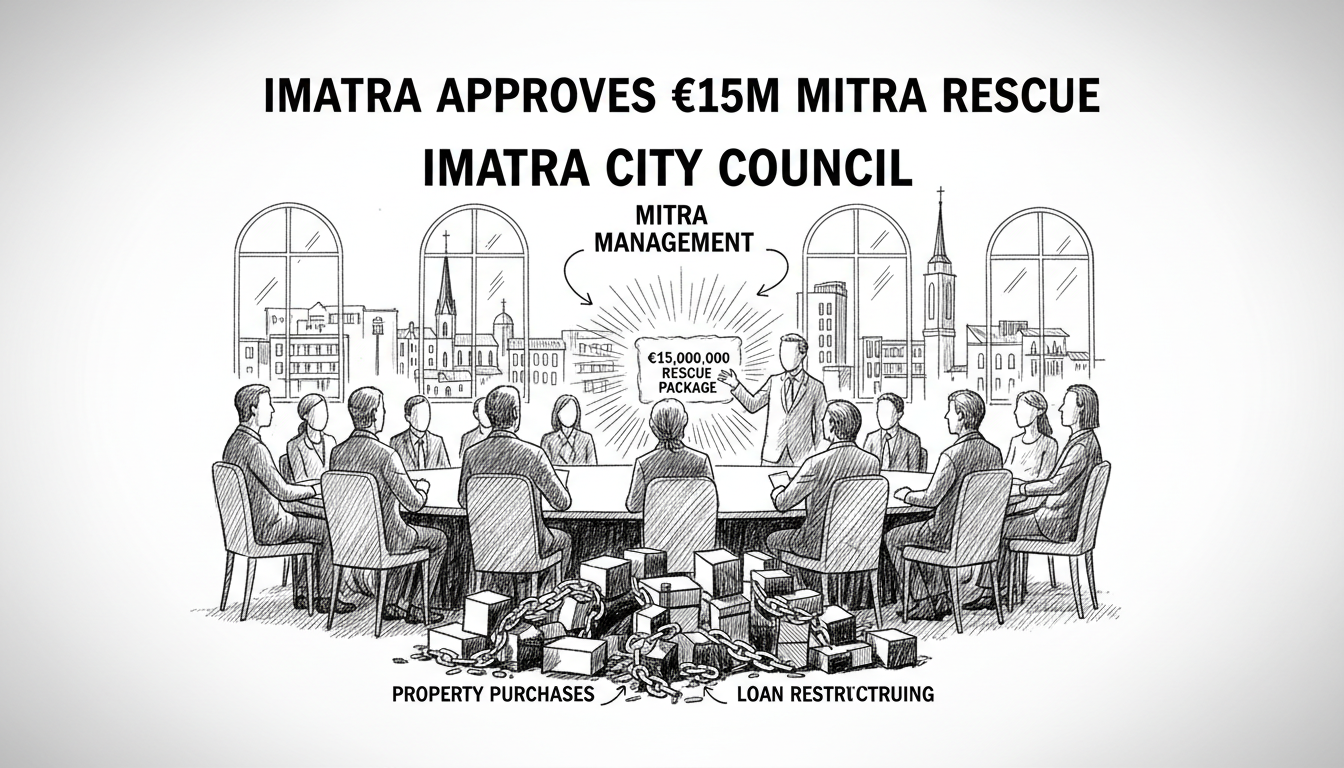The Imatra City Council approved a massive financial rescue package for subsidiary Mitra Management on Monday. The decision passed with minimal opposition after officials warned the company faced imminent collapse. Council member Emilio Urpalainen of the Green Party stated there was no alternative to the bailout. He said the company would otherwise declare bankruptcy, leaving the city responsible for over €41 million in liabilities.
The emergency funding package involves multiple financial maneuvers. The city will invest €4.0 million into Mitra Management's invested unrestricted equity fund immediately. Additional capital injections of up to €1.75 million annually will follow through 2028. This brings the total direct funding to €9.25 million over the current and next three years.
The rescue plan extends beyond direct funding. The city will purchase three apartment buildings from Mitra Management for €4.3 million. These include properties from As Oy Imatran Lemmikki, As Oy Imatran Marioninpolun, and As Oy Imatran Koskitorin. The city also assumes redemption responsibilities for partial ownership apartments and will reorganize housing company loans.
This situation reflects broader challenges facing Finnish municipalities with extensive corporate holdings. Many cities established subsidiaries during economic growth periods to generate revenue. Now, economic pressures test these arrangements. The substantial public funds committed to Mitra Management demonstrate how municipal finances can become entangled with corporate risk.
What does this mean for Imatra taxpayers? The €15 million commitment represents significant municipal spending. Residents may question why public funds support a corporate entity. City officials argue preventing bankruptcy protects against even greater financial exposure. The alternative, they claim, would cost taxpayers more than twice the current rescue package.
The arrangement raises questions about municipal corporate governance. When should cities intervene to save struggling subsidiaries? At what point do continued bailouts become unsustainable? These questions extend beyond Imatra to municipalities throughout Finland managing complex corporate portfolios.
Local governments across Finland watch developments closely. Similar situations could emerge elsewhere as economic conditions challenge municipal enterprises. The Imatra case may establish precedents for how cities handle subsidiary financial crises. The coming years will reveal whether this intervention successfully stabilizes Mitra Management or requires additional public support.

